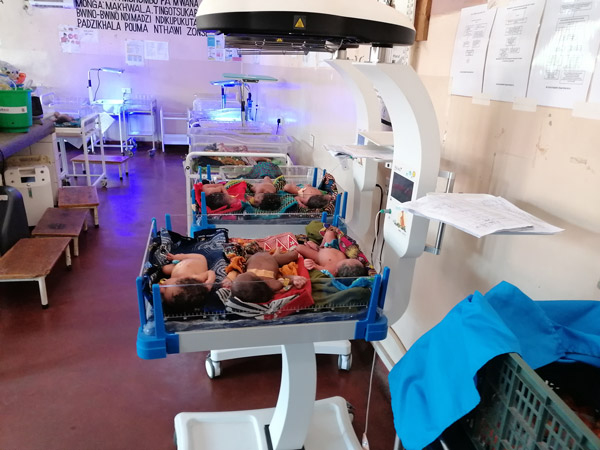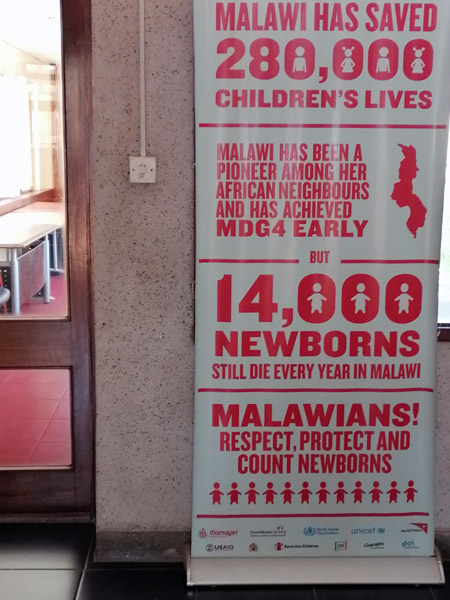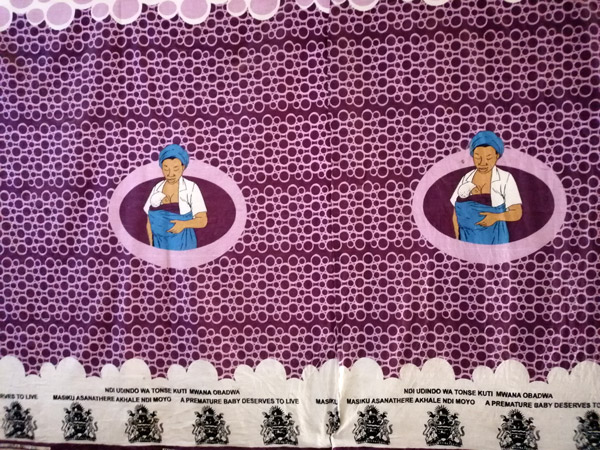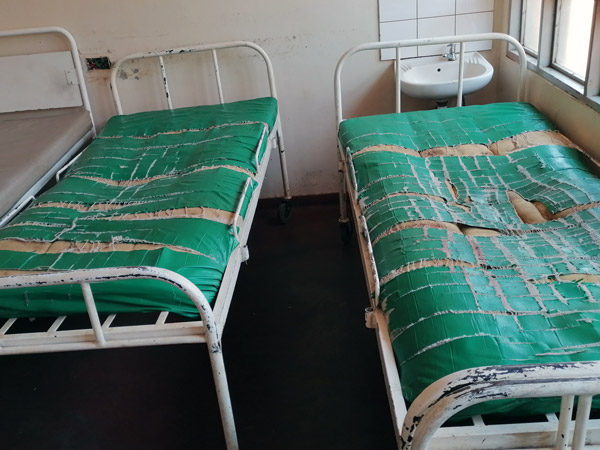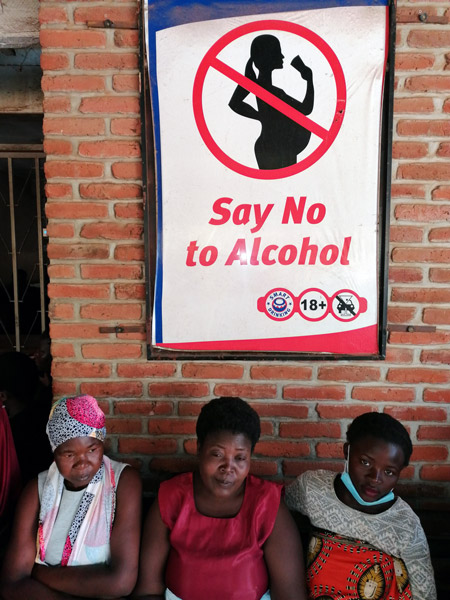Report on the Fact-Finding-Mission Malawi - 02.-08.10.2022
Visit to Bwaila Maternity Hospital/Lilongwe
We met the Chief Medical Officer (CMO) Dr. Thokozani Nyasulu and her management team.
The Bwaila Hospital, with 255 beds, serves as a sort of district hospital and co-operates with Kamuzu University Hospital, which is the main Referral Hospital of Lilongwe. It provides secondary care.
The spectrum of the hospital covers the maternity department with
- Antenatal care
- Postnatal care
- Operation Theatre
- Family Planning Unit
- Gynaecological ward
and the OPD (Outpatient Dept.) with several services for Hepatitis care, HIV care, Tb, Internal medicine, Dermatology, Ophthalmology, Physiotherapy and a Dentist. Bwaila Maternity Hospital employs altogether 3 medical doctors (clinical officers, CO’s) having accomplished their six years study of medicine at a university (Lilongwe or Blantyre). At the very moment, one of them is on maternity leave. There is one Obstetrician/Gynaecologist who practises in town and can be called in special cases. During weekends and nights, the COs work in 24-hour shifts. Due to the lack of medical staff, the hospital has introduced a 3-year-short-training to train and qualify clinical technicians. They receive support by the medical doctors who are on call at home. All medical staff perform caesarian sections.
Having asked for the areas of support where met4a could provide assistance, Dr. Thokozani’s team firstly prioritized training on ultrasound for midwives and secondly refresher courses for midwives (emergencies in obstetrics and capacity building, i.e. Trainer of Trainers - ToT). The WHO recommendation suggests one ultrasound per pregnancy. Since there is a lack of trained personnel this goal can’t be met.
After these discussions on hot topics in obstetrics and midwifery, we visited a very busy maternity unit led by Matron Mercy Chimbalanga. She informed us that there were about 13,000 deliveries per annum conducted, meaning 35-120 per day. They have 8 delivery rooms, each with 2 beds. The morning shift lasts for only 8 hours, whereas the afternoon and night shifts last for 16. The midwives use the WHO-recommended partograph. We identified the need of using that important tool more to recognize possible complications early enough. We would like to provide further training on the use of the partograph. It would help to meet the WHO goals (MDG 5 “Maternal Health”) in the future, having identified complications during birth as the most direct causes of maternal death in Malawi, such as PPH, puerperal sepsis, ruptured uterus, severe pre-eclampsia/eclampsia.
Usually, the women stay for 24 hours in the hospital (Postnatal Ward) and then, if there are no complications, they are discharged.
There is a Neonatal Ward where premature as well as LBW-babies and twins are admitted. Kangaroo Care is the highlight in the ward. We would like to support this ward, too, through lectures on theoretical and practical knowledge (Neonatology), even though MDG 4 (“Reduce Child Mortality”) of WHO has been met already. We visited all maternity departments and wards and met very friendly and conscientious staff.
Visit to the Malawian Ministry of Health
We met the friendly deputy head of the department of clinical services, Dr. Jones Masiye. He showed very much interest in our offer from met4a and promised effective support. He also stressed the need for postgraduate education of midwives and their training in basic ultrasound. He informed us that our project partner would be the Bwaila Maternity Hospital, which is under the local district authority and not directly under the MoH. The local project leader therefore would be Dr. Thokozani, who will possibly be the head of the department for the next 2-4 years. She is the one who is supposed to contact the District Medical Officer (DMO) for permission for our co-operation.
The MoH (Dr. Mary Nkunika and Dr. Jones) would like to be informed on further proceedings.
Visit to Dr. Paul Dielemans’ office/GIZ Malawi
Dr. Paul is the longstanding, very experienced, head of this office and was recently elected to be responsible for all international health projects in Malawi. He advised us for our planned project proposal to apply to the German Hospital Partnerships for funds by end of November 2022 (max. € 50,000 over two years). Dr. Paul informed us about two ultrasound machines for Bwaila Maternity Hospital, which are already in the country and are planned to be used for PHC services. In July 2023, elections are taking place in Malawi. They will certainly have an impact on the healthcare system countrywide. He furthermore arranged a meeting with Mr. Stefan Boy, who gave us important information on the project proposal.
Visit to Mr. Stefan Boy's office at Kamuzu University Hospital
Mr. Boy, from Germany, is employed by the Kamuzu University Hospital and has managed various health projects in Malawi. He mentioned many important things to be think about and be aware of:
- In writing the project proposal to the German Hospital Partnerships at GIZ, we should keep in mind the objectives of the GIZ, such as concerning maternal and neonatal mortality.
- If we plan postgraduate medical education and training of midwives, we should think of the allowances for the participants (covering food and beverages). This is evidently done by all NGOs.
- In case we assume this for other places in the district, we should travel to these places instead of letting the participants travel.
- We could discuss which kind of (financial) support from Dr. Paul’s office would be possible.
- Cynthia Kumwenda and Stefan Boy are ready to support us with the project proposal (correction and completion).
- Concerning the basic ultrasound training, we could think of two Malawian midwives to be trained in Germany to enable them to be a Trainer of Trainees in Malawi.
- There might also be a chance of using telemedicine.
